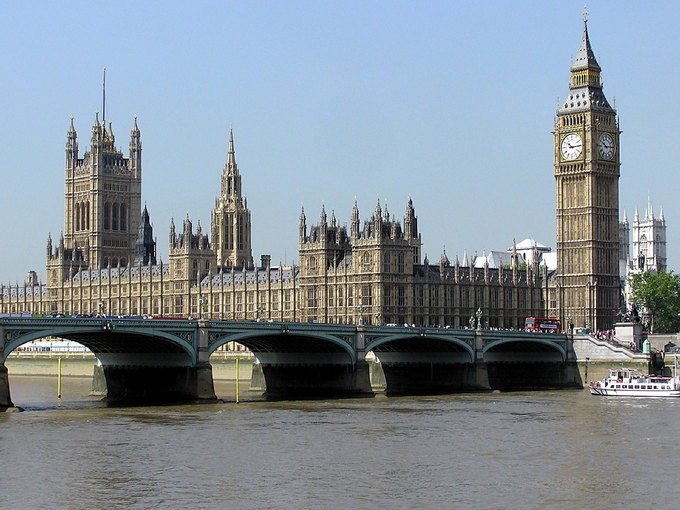 There has been something of a war waging between bookmakers and those that wish to curb their influence on certain sections of society, with the headline grabbing decision last year to now being used as a precedent. A group of MPs believe that the cut on maximum stakes to £2 should be imposed on all online casinos and many people believe that FOBTs are just the tip of the iceberg when it comes to gambling problems.
There has been something of a war waging between bookmakers and those that wish to curb their influence on certain sections of society, with the headline grabbing decision last year to now being used as a precedent. A group of MPs believe that the cut on maximum stakes to £2 should be imposed on all online casinos and many people believe that FOBTs are just the tip of the iceberg when it comes to gambling problems.
The MPs are convinced that a ‘root and branch’ overhaul of the gambling laws are necessary if problem gamblers are to be helped as much as possible. The cross-party group produced a wide-ranging report on the harm caused by gambling. They want a whole host of measures to be introduced to protect the most vulnerable people in society, with the £2 limit to online slot machines being of the key requests. They have also recommended that people are no longer allowed to use credit cards to make deposits into their accounts.
The All-Party Parliamentary Group (APPG) Inquiry

Members of Parliament formed an All-Party Parliamentary Group in order to look at gambling-related harm. It was made up of some high-profile MPs, including former Conservative leader Iain Duncan Smith, who was the vice-chairperson of the group, and Labour’s Carolyn Lewis, who led it. Ronnie Cowan, who represents the Scottish Nationalist Party, was also on the panel as well as a number of other MPs from various different political parties.
The inquiry lasted for six months and the MPs spoke to numerous different people, including both gambling company representatives and people that suffer from gambling addiction. The Chief Executives of some of the industry’s biggest names caused anger from MPs when they pulled out of giving testimony earlier this year. Some Labour MPs have long believed that the Gambling Act of 2005 needs to be replaced, so it’s fascinating that the cross-party group of MPs also seems to have come to the same conclusion.
Stake Limits & Credit Card Bans Proposed

There are numerous headline-grabbing things to come out of the report, not the least of which is an echoing of the Labour Party’s calls for the Gambling Act of 2005 to be axed and more suitable legislation brought in in its place. The panel suggested that it was ill-suited for its job, condemning it as being ‘analogue legislation in a digital age’. It’s little wonder considering the fact that the online gambling industry brings in around £5.6 billion per year, which is considerably more than it was responsible for when Tony Blair’s Labour government relaxed gambling legislation in the first place.
There is also a belief that the online industry should be made to fall in line with the physical world by applying a maximum bet of £2 to online slot machines. The report said, “If they are not acceptable in land-based venues they should not be allowed online”. That is slightly misleading, however, given that the limit was introduced to Fixed Odds Betting Terminals located in betting shops, as opposed to slot machines in place in land-based casinos up and down the country. The point does stand, though, and MPs obviously feel that it’s not right for people to be able to gamble huge amounts online when they’ve been stopped from doing so at betting shops because FOBTs were called a ‘blight on society’.
Something else that some of the MPs feel is unacceptable is the fact that people are able to use credit cards to make deposits into their online betting accounts. It’s believed that as much as 20% of deposits are made using credit cards. Given that the average amount of disposable income in the UK is around £450 per month, MPs are concerned that bookmakers and casinos don’t check a customer’s finances before allowing them to extend their credit in order to gamble online. The report also calls on the restriction of VIP accounts, which are often used to offer problem gamblers incentives to keep on gambling when they’ve already racked up large debts.
Industry Reaction to the Report

Understandably the industry has reacted in a contrary fashion to the report. The Chair of the gambling industry’s Betting & Gaming Council, Brigid Simmonds, said that there was a firm commitment from the companies that she represents to ensure that customers can enjoy a ‘safe gambling experience’. She also said that members of the BGC are investing heavily in the various forms of news technology in order to identify customers that are at risk of harm, as well as introducing ‘new affordability checks’. That was something that was shot down by the report, however, given that industry representatives couldn’t tell the APPG what level of gambling they considered to be ‘affordable’.
The Gambling Commission, which is the industry’s regulator, came in for criticism as Harris declared it to be ‘not fit for purpose’. A spokesperson for the Commission felt that the report was unfair to them as they had not had a chance to give any evidence before it was published. It comes in the wake of the Commission’s decision not to fine Ladbrokes in spite of the fact that the bookmaker had told the victims of a £1 million theft by a problem gambler that they’d only receive their money back if they agreed to sign a Non-Disclosure Agreement. The UKGC spokesperson said, “The report does not reflect our considerable action and progress on most of the areas of concern set out in the report”.
Iain Duncan Smith, meanwhile, said that the fact that there are no stake limits online is ‘outrageous’. He was equally unimpressed with the fact that customers can use credit cards to make deposits and that gambling companies are able to ‘offer inducements to the vulnerable without proper sanction’. The APPG is confident that they will be able to pass new legislation regardless of what happens with Brexit, not least of all because the current Prime Minister, Boris Johnson, was amongst the MPs who criticised the government when it proposed plans to delay the reduction of the maximum stake on FOBTs from £100 to £2. It’s thought, therefore, that he is sympathetic to the calls for stricter legislation, which is also supported by Labour.
Bookmakers’ Share Prices Hit

Given the natural volatility of the stock market it’s perhaps not a major surprise that the news has caused some problems for online casinos and their shareholders. The Gambling Related Harm All-Party Parliamentary Group’s report publication can only offer recommendations and can’t force the government to do anything. Yet many didn’t think that the government would cut the maximum stake playable on Fixed Odds Betting Terminals from £100 to £2, so any threat to the activities of online gambling companies, whether real or perceived, will be taken seriously by investors.
Neil Wilson, who is a Chief Market Analyst, said that it would be a ‘big blow’ if the recommendations of the panel were to be taken seriously. At the end of play all of the major companies, including Flutter Entertainment, William Hill, Rank Group and GVC Holdings were facing pressure on their share prices with some losing as much as 8% off the price. RBC Capital Markets said that the moves in the shares of the big players was a sign of ‘how nervous the market is’. It will be interesting to see how this pans out as more news emerges about it in the coming weeks.

